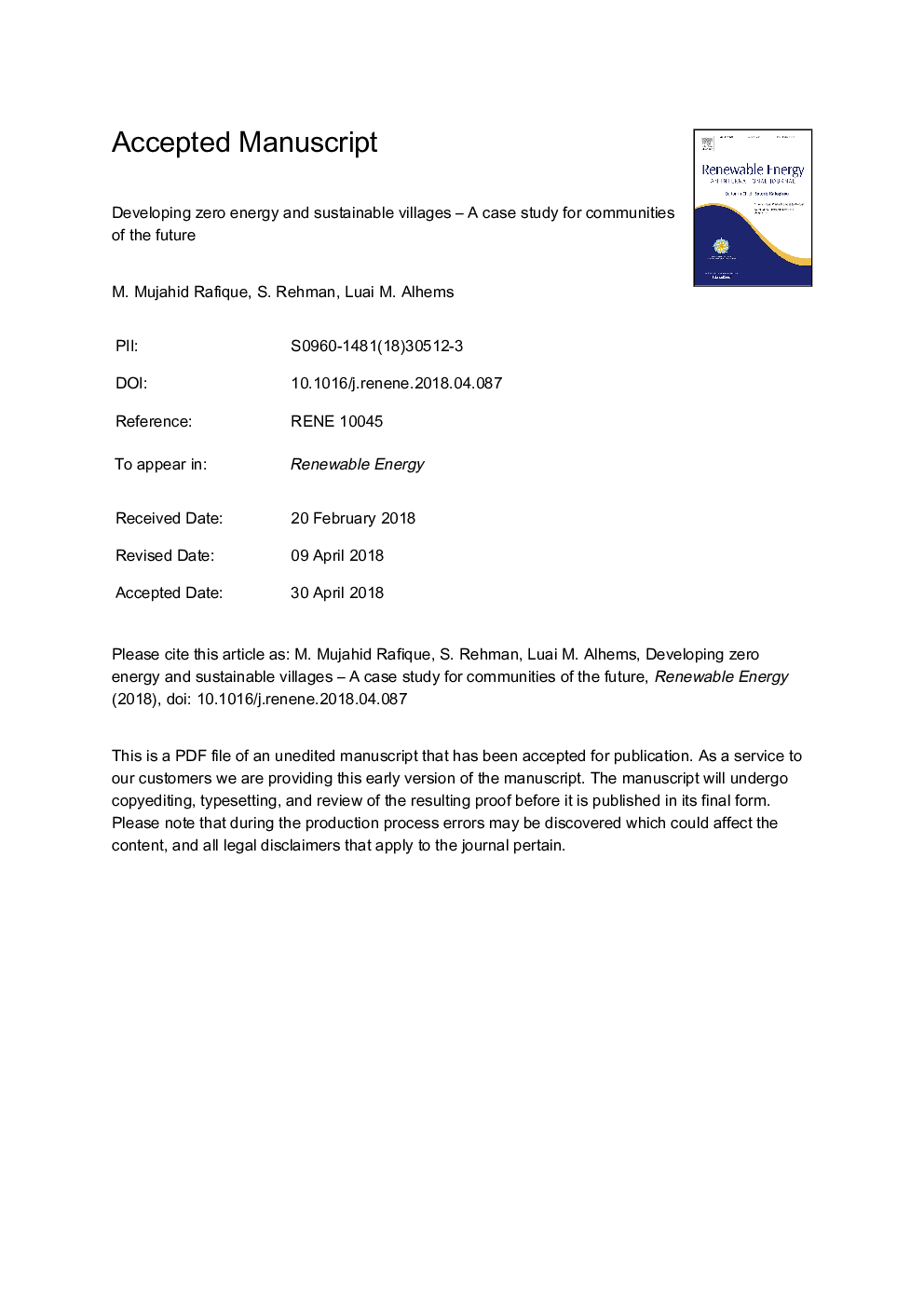| Article ID | Journal | Published Year | Pages | File Type |
|---|---|---|---|---|
| 6764131 | Renewable Energy | 2018 | 24 Pages |
Abstract
Pakistan is an agricultural country and most of its population resides in rural areas. These communities have small power demands which can easily be met through proper utilization of renewable energy technologies such as solar photovoltaic (PV). The focus of this research work is to encourage people and government to develop zero energy communities which will greatly help to achieve sustainable energy infrastructure in the country. In this paper, feasibility of a grid-connected PV power system without battery backup is conducted for the climatic conditions of a rural community located in Toba Tek Singh, Pakistan. RETScreen clean energy simulation tool is used to optimize and carry out feasibility analysis of the proposed PV system. The analysis is carried out based on project finances, fuel saving potential, energy production, capacity factor, and reduction of greenhouse gas emissions. The financial viability of the project is studied by comparing it with the grid electricity. The results indicate that the proposed PV power plant can provide energy in remote areas at relatively better rates as compared to grid electricity. Furthermore, this initiative will help to reduce the emissions of harmful greenhouse gases and to achieve a sustainable development in the country. A sensitivity analysis is also performed to demonstrate and elaborate the effects of government incentives on different decision variables.
Related Topics
Physical Sciences and Engineering
Energy
Renewable Energy, Sustainability and the Environment
Authors
M. Mujahid Rafique, S. Rehman, Luai M. Alhems,
